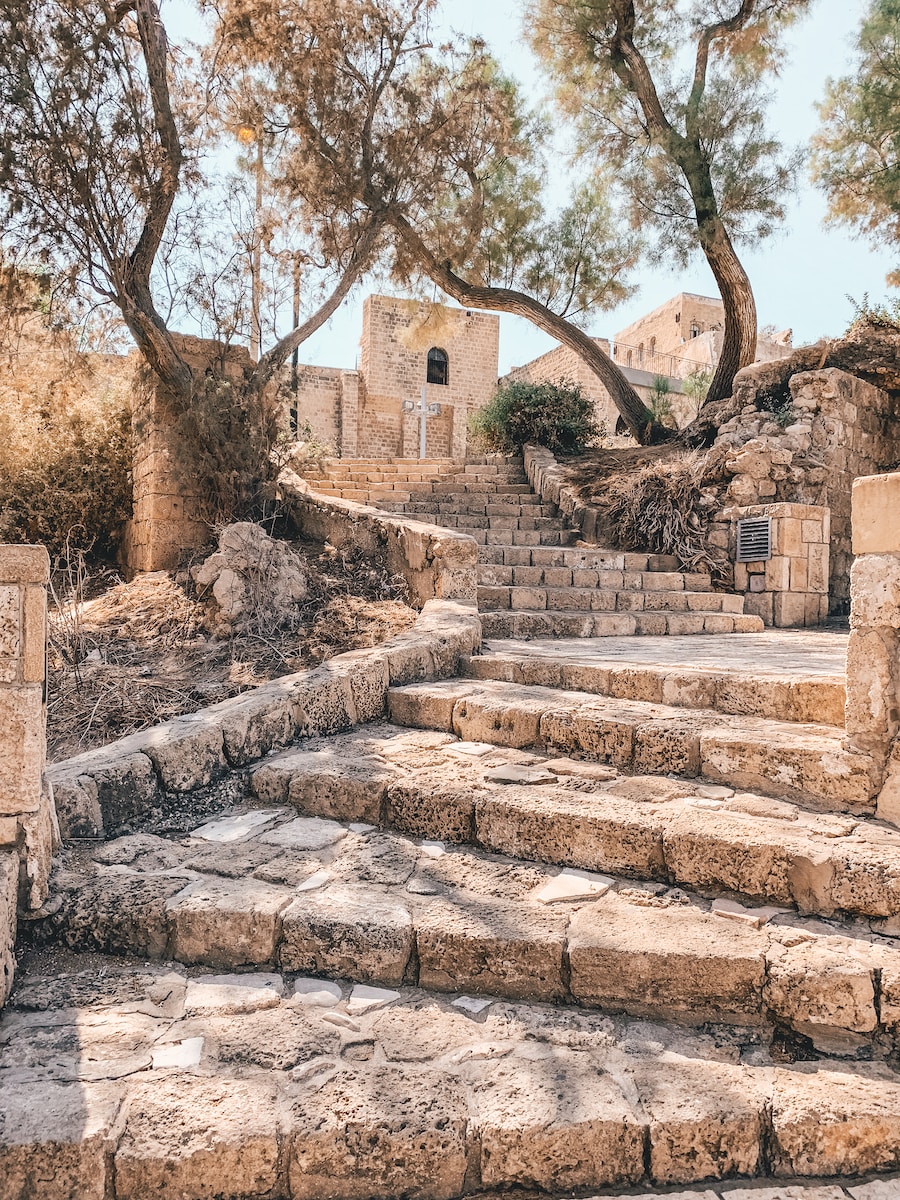Isaiah Chapter 24: Prophetic Vision of Global Transformation and Spiritual Redemption
Introduction
Isaiah Chapter 24 holds immense significance in the Bible as it unveils a prophetic vision of global transformation and spiritual redemption. It offers a profound message that resonates with believers and provides invaluable insight into God’s plan for humanity. In this article, we will delve deeper into the key themes, messages, and interpretations found in Isaiah Chapter 24, shedding light on its profound spiritual teachings.
Overview of Isaiah Chapter 24
Isaiah Chapter 24 is a sermon that combines words of comfort and warning. It serves as a powerful reminder of the consequences of sin and the need for repentance.The structure and context of Isaiah Chapter 24, which is a sermon of comfort and warning, provide a framework for understanding the profound message it conveys. God’s judgment will cause the earth to become empty, ruined, and scattered. The chapter employs specific verses to paint a vivid picture of the desolation and destruction awaiting the earth as a result of God’s judgment.
The chapter opens with a powerful description of the earth being emptied and laid waste, serving as a stark reminder of the consequences of humanity’s rebellion against God.The imagery used throughout this chapter portrays a scene of utter devastation and destruction, leaving no doubt about the severity of God’s judgment. Furthermore, the chapter emphasizes that this judgment is universal, affecting all people regardless of their social status or position in life.
The Prophetic Vision of Judgment and Desolation
Isaiah Chapter 24 presents a prophetic vision of God’s judgment, resulting in the desolation and destruction of the earth. This vision serves as a stark reminder that no one is immune to God’s judgment, regardless of their status or position in life. The earth mourns and fades away due to the defilement caused by humanity’s sin and transgression. The curse devours the earth, leading to desolation and the crumbling of cities.
The prophetic vision in Isaiah Chapter 24 provides a powerful illustration of the consequences of sin and rebellion against God. It portrays a world in chaos and turmoil, where the effects of sin have reached their climax. The judgment of God is depicted as a necessary and just response to humanity’s rebellion and wickedness. The earth itself is affected by this judgment, reflecting the profound impact of sin on all of creation.
For example, we can see the manifestation of this vision throughout history. The rise and fall of empires, the destruction of cities, and the devastation caused by wars and conflicts all serve as reminders of the consequences of human actions. These events mirror the judgment and desolation described in Isaiah Chapter 24 and illustrate the timeless relevance of this prophetic vision.
#Isaiah24 #PropheticRevelation #DivineGuidance #JesusChrist #MessianicContext #BiblicalProphecy #TrustinGod’sPlan #SpiritualInsight #ContextofProphecy #HopeAmidstAdversity #Redemption #SpiritualAwakening #AnticipationofDeliverance #PropheticFulfillment #AssuranceofGod’sSovereignty #PropheticIllumination #MessianicPromise #JesusChrist’sRole #EconomicContext #SpiritualInsight #BiblicalProphecy #TrustinDivineGuidance #HopeinProphecy #Redemption #TradeContext #PropheticRevelation #God’sSovereignty #PropheticVision #GlobalTransformation #SpiritualRedemption #EschatologicalInsight #FutureRenewal
Interpretation of Global Transformation and Spiritual Redemption
Isaiah Chapter 24 presents a vision of global transformation that ultimately leads to spiritual redemption. Through God’s judgment, the earth is cleansed, renewed, and restored. This transformation is intricately connected to spiritual redemption, as God’s laws and ordinances are reinstated. It is a transformative process that brings about a new beginning for humanity.
The prophetic vision in Isaiah Chapter 24 highlights the significance of God’s judgment as a catalyst for redemption and renewal. It serves as a wake-up call for humanity to turn away from their sinful ways and return to God. The desolation and destruction described in Isaiah Chapter 24 are not the end of the story, but rather the beginning of a new chapter of restoration and renewal.
As an illustration of this transformation, consider the story of the prodigal son. In the parable, the son indulges in a life of sin and rebellion but eventually realizes the error of his ways and repents. This moment of awakening leads to his redemption and restoration to the father’s house. Similarly, the prophetic vision in Isaiah Chapter 24 depicts a world that has reached the depths of depravity but ultimately finds redemption and restoration through God’s judgment.
Key Themes and Messages
Isaiah Chapter 24 showcases several key themes and messages that resonate with believers. It emphasizes the consequences of sin and the urgent need for repentance. The chapter also underscores the universal nature of God’s judgment, which touches every aspect of creation.Amidst the judgment, there is a remnant of righteous individuals who find comfort and joy in praising God.
One of the key themes in this chapter is the importance of recognizing the consequences of our actions. The vision presented in Isaiah Chapter 24 serves as a powerful reminder that sin has far-reaching effects and can lead to devastating consequences. However, it also emphasizes the opportunity for repentance and redemption, highlighting God’s mercy and grace.
Another important theme in Isaiah Chapter 24 is the contrast between the temporary and the eternal. The judgment described in this chapter brings about the destruction of cities and the crumbling of earthly structures, illustrating the impermanence of worldly accomplishments. In contrast, the reign of God and the establishment of His righteous rule signify the eternal nature of His kingdom.
To further illustrate these themes, consider the story of Noah and the great flood. The world had become corrupt and filled with violence, leading to God’s judgment in the form of a catastrophic flood. However, Noah and his family found favor in the eyes of God because of their righteousness. Through Noah’s obedience and faithfulness, a remnant was spared from the judgment, and the earth was renewed. This story echoes the key themes present in Isaiah Chapter 24 and serves as a powerful example of the consequences of sin and the hope found in God’s redemption.
The Relationship Between Sin and Judgment
Isaiah Chapter 24 highlights the intrinsic relationship between the sin of the inhabitants and God’s judgment. The defilement of the earth by sin leads to the inevitable manifestation of God’s judgment. The judgment described in this chapter serves as a response to humanity’s rebellion and disobedience. It is a just and necessary means of restoring order and righteousness to the world.
Throughout history, we witness numerous examples of how sin and rebellion lead to judgment and destruction. The story of Sodom and Gomorrah is a fitting example. The cities were known for their wickedness and immorality, prompting God’s judgment in the form of fire and brimstone. This event serves as a reminder of the consequences of sin and rebellion against God.
Isaiah Chapter 24 also emphasizes that God’s judgment affects people of all ranks and conditions, leaving no one untouched. This reflects the impartiality and fairness of God’s judgment. Regardless of social standing or earthly power, all individuals will be held accountable for their actions.
The Contrast Between the Righteous and the Wicked
Isaiah Chapter 24 presents a stark contrast between the righteous and the wicked. While the judgment brings lamentation and wrath upon the wicked, the remnant of righteous individuals find comfort and joy amidst the chaos. They lift up their voices in praise to God, serving as a testament to their unwavering faith and trust in Him.
This contrast between the righteous and the wicked serves as a reminder that righteousness and faithfulness are not determined by external circumstances. Even in the midst of tribulation, the remnant finds solace and strength in their relationship with God. Their unwavering devotion sets them apart from the wicked and allows them to experience God’s presence and protection.
Consider the story of Daniel and his three friends in the book of Daniel. Despite facing persecution and the threat of death, they remained faithful to God and refused to compromise their beliefs. Their unwavering faith and trust in God’s deliverance set them apart from the wickedness of their time. This story serves as an inspiring example of the contrast between the righteous and the wicked, and the faithfulness and protection of God in the face of adversity.
The Reign of God in Mount Zion and Jerusalem
Isaiah Chapter 24 concludes with the promise of God’s reign in Mount Zion and Jerusalem. The glory and sovereignty of God surpass any human ruler or idol. This reign brings about restoration, hope, and a renewed sense of purpose. It signifies the ultimate fulfillment of God’s plan for redemption and establishes His righteous rule over creation.
The reign of God in Mount Zion and Jerusalem represents the establishment of His kingdom on earth. It signifies the restoration of all things and the fulfillment of God’s promises to His people. This reign brings about a state of peace and righteousness, where the effects of sin and rebellion are no longer present. It is a vision of hope and transformation for all who trust in God’s faithfulness.
To further illustrate this concept, consider the story of King David. Throughout his reign, David sought to establish Jerusalem as the spiritual and political center of Israel. Under his rule, Jerusalem experienced a time of peace and prosperity, serving as a foreshadowing of the ultimate reign of God in Mount Zion and Jerusalem. David’s reign serves as a glimpse of the peace and righteousness that will be fully realized in the reign of God.
The Fulfillment in the Great Tribulation
The prophetic vision in Isaiah Chapter 24 finds its ultimate fulfillment during the Great Tribulation. This period intensifies the judgment and transformation described in the chapter. It serves as a time of purification and refinement, leading to the ultimate triumph of God’s righteousness.
The Great Tribulation represents a time of unparalleled chaos and turmoil, where the consequences of sin and rebellion reach their climax. It is a period of intense judgment and divine intervention, where God’s righteousness prevails over evil. The fulfillment of Isaiah Chapter 24 during the Great Tribulation signifies the completion of God’s redemptive plan and the ushering in of a new era of peace and righteousness.
Throughout history, there have been numerous instances where the consequences of sin and rebellion have intensified, leading to significant periods of tribulation. The destruction of Jerusalem and the exile of the Israelites serves as one such example. The judgment and devastation experienced by the Israelites during this time mirror the prophetic vision described in Isaiah Chapter 24. These historical events serve as a reminder of the fulfillment of God’s judgments and the ultimate triumph of His righteousness.
The Role of the Remnant
The remnant of righteous individuals mentioned in Isaiah Chapter 24 holds great significance. They stand as a testimony to God’s faithfulness and continue to lift their voices in praise amidst the judgment. Their unwavering devotion to God serves as an example for others and brings hope in the midst of challenging times.
The remnant serves as a beacon of light and hope in a world filled with darkness and despair. They demonstrate the power of faith and the transformative effect of God’s presence in their lives. The remnant’s commitment to praising God amidst the chaos is a powerful testimony to the faithfulness of God and the assurance of His promises.
For instance, consider the story of Elijah in the Old Testament. Amidst a period of intense persecution and idolatry, Elijah remained faithful to God. He believed that he was not alone and that there were still those who had not bowed down to false gods. God revealed to Elijah that there were indeed seven thousand individuals who had not compromised their faith. This story highlights the role of the remnant in preserving the truth and the power of their witness amidst challenging times.
Conclusion
In conclusion, Isaiah Chapter 24 presents a profound prophetic vision of global transformation and spiritual redemption. It emphasizes the consequences of sin, the universal nature of God’s judgment, and the ultimate reign of God in Mount Zion and Jerusalem. This chapter calls for repentance and serves as a reminder of the hope found in God’s mercy. It assures believers that amidst the chaos and devastation, there is a remnant who will find comfort and joy in praising God. The fulfillment of this prophetic vision during the Great Tribulation signifies the triumph of God’s righteousness and the ultimate establishment of His reign. May we heed the messages conveyed in Isaiah Chapter 24 and embrace the transformative power of God’s love and redemption.



